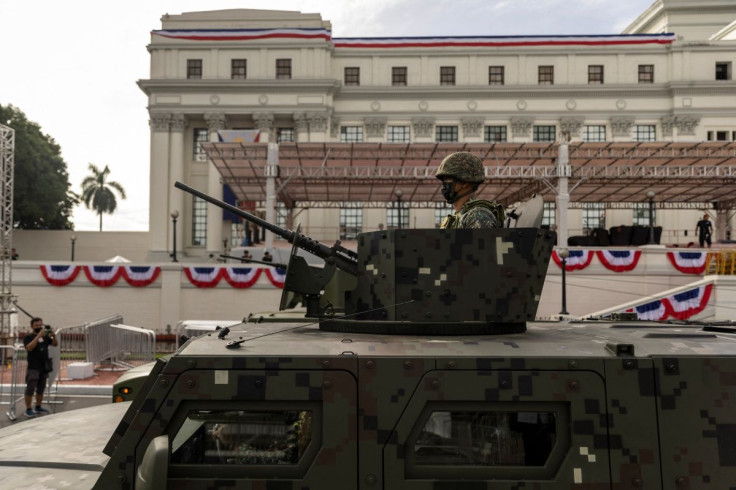Philippines Starts New Era Of Marcos Rule, Decades After Overthrow

Ferdinand Marcos, the son of the Philippine ruler overthrown in a popular uprising 36 years ago, was sworn in as the country's president on Thursday, promising to strive for unity and a better future while praising his late father's legacy.
Marcos, 64, won last month's election in a landslide, capping off his wealthy family's decades-long quest to regain the presidency and transform its image after it was driven out in 1986.
"We are here to repair a house divided, to make it whole and to stand strong again," he said in an inauguration speech that echoed his campaign slogans of unity.
In a rousing, 30-minute address with sister Imee, a senator, and mother Imelda, a former congresswoman, seated nearby, Marcos Jr thanked voters for giving him "the biggest electoral mandate in the history of Philippine democracy", and said the country would go far on his watch.
The elder Ferdinand Marcos ruled for two decades from 1965, almost half of it under martial law, helping him to extend his power until his overthrow and his family's retreat into exile during a "people power" revolution.
Thousands of his opponents were jailed, killed or disappeared during his rule, and the family name became synonymous with cronyism, extravagance and billions of dollars of missing state wealth. The Marcos family denies embezzlement.
"I am here not to talk about the past. I am here to tell you about our future," Marcos Jr said before thousands of cheering supporters, waving flags, and wearing red, a colour associated with his father.
"No looking back in anger or nostalgia."
Marcos Jr, who closely resembles his late father, defended his father's legacy and said he would emulate his achievements.
"I once knew a man who saw what little had been achieved since independence ... but he got it done. Sometimes with the needed support, sometimes without, so, will it be with his son. You will get no excuses from me," he said.
Marcos took his oath at the heavily guarded National Museum, once a legislative building that witnessed frequent demonstrations against his father's presidency.
'REJECT, MARCOS'
Close by, hundreds protested against Marcos, angered by a campaign his critics say relied heavily on social media to win votes by debunking narratives of Marcos-era abuses and decadence and offering alternative versions of history.
Carrying banners saying "Reject, Marcos" they gathered at the Plaza Miranda, where some of his father's opponents were killed and injured in a bombing blamed on communists.
Marcos campaigned on the slogan "together, we shall rise again", invoking nostalgia for his father's rule, which his family and supporters have portrayed as a golden age for the Philippines.
At a heroes' monument, victims of persecution under martial law gathered for their own oath-taking, promising to guard against what they called tyranny and lies.
"The survivors are a vanishing breed, if not an endangered species and the time to correct falsehoods and lay bare the truth is now," said Cristina Bawagan, who said she suffered abuse under the elder Marcos' rule.
His son has pledged to deliver jobs and bring down consumer prices in a country of 110 million people, nearly a quarter of whom live on less than $2 per day.
He said he would not disappoint the public and would improve food sufficiency, education, infrastructure and energy supply, tackle plastics pollution and better support millions of overseas Filipino workers.
"I am ready for the task," he said. "I will get it done."
© Copyright Thomson Reuters 2024. All rights reserved.





















